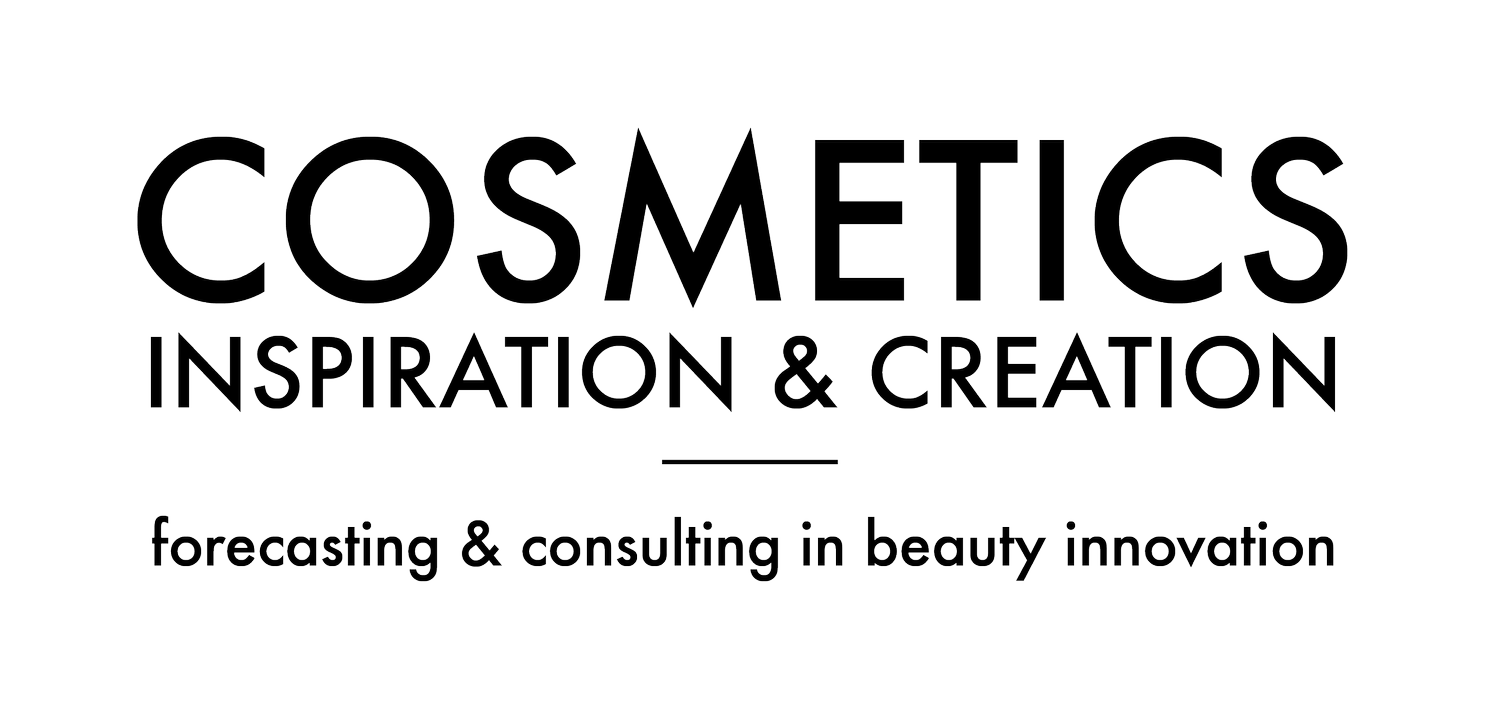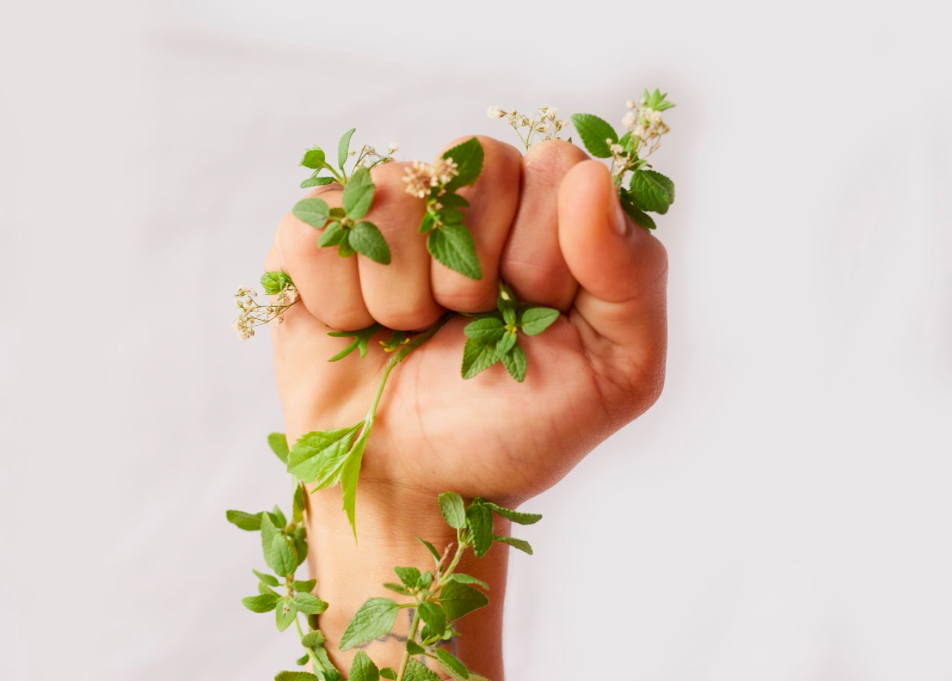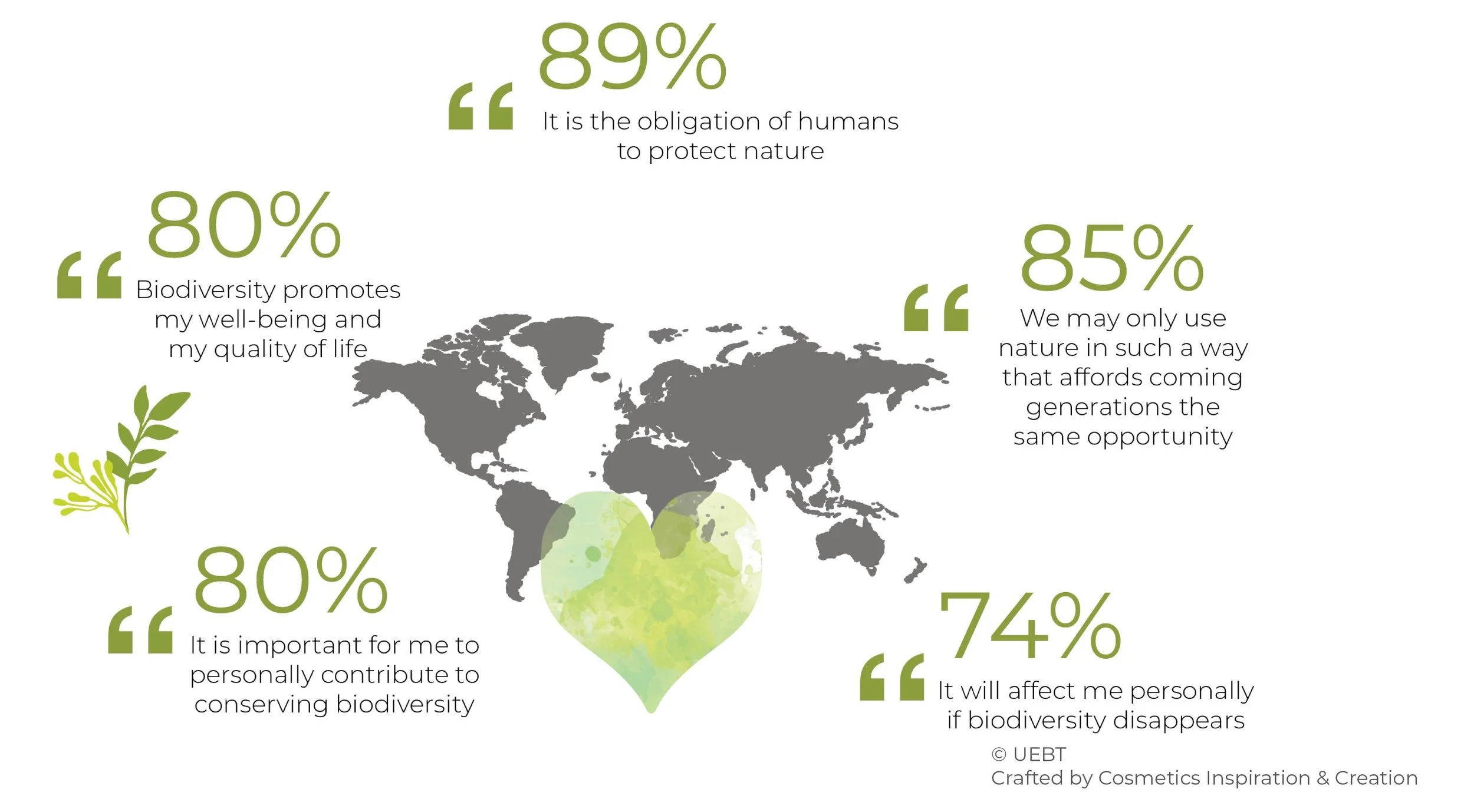Source: istock - PeopleImages
On June 19, 2018, the UEBT* (Union for Ethical BioTrade) celebrated the 10th year of annual research dedicated to biodiversity awareness and sourcing with respect. Good news: according to their latest numbers, consumers’ awareness towards sustainability is on the rise.
Led in over 16 different countries since 2009 and commissioned by the UEBT, the results of the Biodiversity Barometer have contribute to have contributed to raise awareness amongst companies and organizations all around the world on the importance of biodiversity in our industries. The results of the latest 2018 Biodiversity Barometer (survey in 5 countries, 5000 consumers) speak for themselves: awareness and understanding of biodiversity are globally growing. An increase in the understanding of biodiversity over the past 10 years has been important in all countries. More significantly, consumers expect transparency, proofs and concrete actions from brands are clearly expected by a consumer that is more conscious than ever. Moreover, a massive 80% of consumers feel that "biodiversity conservation is important for their personal well-being", with a strong notion of transmission for generations to come (85%).
Moreover, respecting biodiversity is now fundamentally connected to personal well-being with a massive 80% of consumers feeling that "biodiversity conservation is important for their personal well-being" , with a strong notion of transmission for generations to come (85%).
When Personal Involvement Is at Stake
Protecting biodiversity has become important for consumers as 80% of those surveyed say "it is important for them to personally contribute to conserving biodiversity". Protecting biodiversity has thus become a personal quest as the awareness of this mainstream subject has increased since 2009 with the highest increase occurring among youth (+ 19 points) and among lower earners (+ 13 points).
A Key Insight: the "Human Factor"
In 2009, our blog, Cosmeticseeds, (French version) underlined the importance of protecting biodiversity, "a diversity of fauna, flora and overall wild life that makes the rich complexity of our ecosystems". The fragile eco-system that needs to be protected from the excesses of our society. Human activities endanger the complex balance – but not only.
What’s at stake here? On one hand, a respectful sourcing from the industry who needs to access ressources without damaging the environment. On the other hand, a mindful sourcing of human "know-hows", which implies respecting local workers as well as their traditional knowledge and expertise. "Developing countries", rich in biodiversity and traditional knowledge, face this major twofold issue.
"Nature inspires Cosmetics thanks to its hedonism", says Leïla Rochet. "But paradoxically, Nature’s ressources are finite. Protecting nature and respecting communities involved with biodiversity are now more and more at the center of consumers’ preoccupations and brands need to get more ethically involved."
Shuttersock - Niphon Kai
Words Mean Action: The "Walk the Talk" Factor
In our contemporary society, consumers are informed and conscious of the damage done to the environment. Empowered by digital tools and social conversations, consumers show unprecedented expectations towards brands. Educated with tools to detect "green washing" techniques, consumers expect actions that matter more than words. Brands are experiencing a trust crisis, especially in the area of respectful sourcing. The Biodiversity Barometer shows that only 37% of respondents think that companies pay attention to respectful sourcing, dropping to 25% in France. Today, brands should focus on building trust as consumers expect more transparency and authenticity.
With internet access at the palm of their hands, consumers can quickly check the brand’s credibility and love to engage with brands that they trust to "do good" . To become a "good" brand, they must behave in such ways that convinces consumers, beyond just words, and through actions. Meaning ethically, no harm is done to animals (the new "cruelty-free" or "vegan" labels) and respecting the humans involved (fair wages, dignified working conditions, gender equality in the workplace etc.) in a sustainable way and transparent way (origin of ingredients, fair wages, etc.).
A New Collective Humanization: The "Me to We" Factor
This new "me to we", as coined by Anne Bahr Thompson, author of DO GOOD and one of the keynote speaker at the June 19 Conference, is a transition towards an aware consumer, eager to find brands which can improve both the world and global living conditions. " Customers expect brands to truly care about them, their values, and the world at large. People want to see companies engage in fair employment practices, social responsibility, and charitable giving. In addition, they want companies to advocate on their behalf and make them feel that they are part of a larger community or grander mission," explained Anne Bahr Thompson at the UEBT conference.
The "me to we" doesn’t include sustainability only, but overall wellbeing: 74% of those surveyed say they feel good about buying products that respect people and biodiversity, and 79% feel that companies have a moral obligation to assure that they have a positive impact on people and biodiversity. Finally, a massive 57% say they buy products from companies that respect biodiversity and people.
Presentation of the UEBT Barometer by the Cosmetics Inspiration & Creation agency
Challenges for Brands, but also Opportunities
Needless to say, the Beauty industry now has to address these upcoming challenges, but this is also the main opportunity for brands to go beyond a natural positioning and become actors of change. Social media provides a unique opportunity for brands to engage with a more involved and conscious consumer and share their progress in an authentic and transparent way.
The rise of "niche brand" who only 'do good'; as highlighted by the Cosmetics Inspiration & Creation agency in its new trend book Freedom Beauty – Inspiration From the USA, might also undermine the position of Legacy brands who need to stay up to date by improving their status on sustainability.
Partners of the UEBT since 2009, Cosmetics Inspiration & Creation is proud to have worked with the UEBT on the 2018 Biodiversity Barometer’s website conception, interpretation and creation.
Want to know more? Contact the agency
Discover their latest trend book Freedom Beauty – Inspiration From the USA
*UEBT (Union For Ethical BioTrade) is a non-profit association that promotes sourcing with respect. They support and verify companies’ commitments to innovation and sourcing that contribute to a world in which people and biodiversity thrive.
Their website: www.uebt.org




